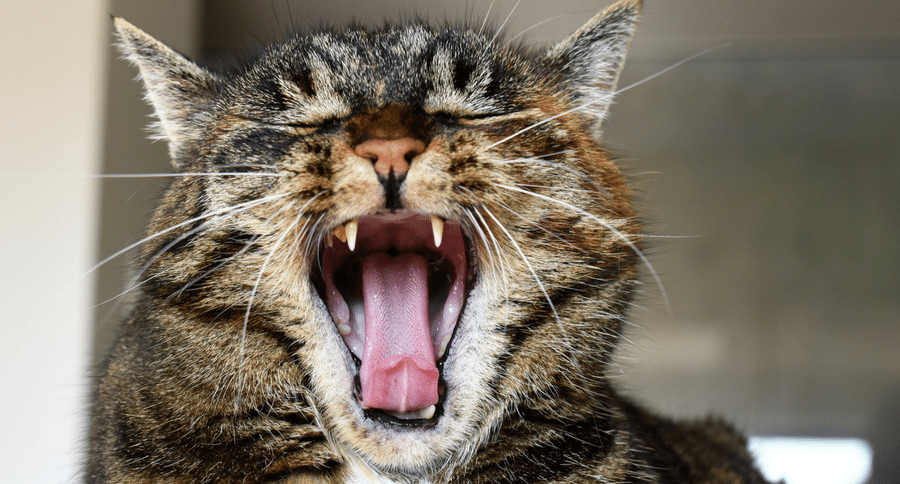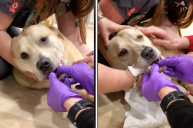Bad breath isn't something to ignore in dogs and cats. Smelly mouths can be a sign of a serious condition called a tooth abscess, which occurs when the root of the tooth is harboring a bacterial infection. The gums are a direct line to the heart, which means infected teeth are a channel for bacteria straight down the blood stream.
That means if a tooth root abscess is not addressed, it can lead to more dangerous disease and can affect your pet's overall health. Learning the causes and symptoms of an abscess can help you to more readily address it in case your pet ever develops one.
Common Causes
https://www.instagram.com/p/B04cwdTprBi/
A tooth abscess most often occurs when the tooth has been cracked, chipped, or broken, such as with a slab fracture. The tooth could also have been traumatized in another manner that does not result in any break, such as with blunt force or another traumatic injury.
The most common teeth to be affected include the carnassial or shearing teeth (carnassial tooth abscess) on the lower and upper jaw, followed by the premolars.
Symptoms
https://www.instagram.com/p/B7_N9MkFNy3/
The most common and obvious sign of a broken tooth abscess is a swollen pocket of flesh which externally appears to be in the nasal cavity or even just below the eye. It can appear rather quickly and grow rapidly over the course of a few days until it bursts. This is why tooth abscess is commonly misread as an outward sign of an eye infection or even a puncture wound.
Symptoms of a tooth abscess include:
- Facial swelling
- Changes in chewing or eating behavior
- Excessive drooling
- Unwilling to let head be touched
- Pawing or rubbing at face
- Bad breath
- Swollen, red gumline
Treatment
https://www.instagram.com/p/B4d6IOgJuOh/
Treatment for abscessed teeth typically begins with a dental procedure in which the veterinarian will perform dental x-rays to make sure the infection hasn't spread in other teeth. Antibiotics will be prescribed and often pain medication (NSAIDs), too, as the swelling can be uncomfortable.
During the dental exam, the abscessed tooth can either be extracted or a root canal can be performed, which keeps the affected tooth intact. Root canals are not always an option, though, as they can only be done if nearby teeth are healthy. If the pet is a candidate for a root canal and the owner opts for this, the veterinarian may refer the patient to a specialist as it is a complicated procedure.
Pets sometimes also require a soft diet in the few weeks following a tooth abscess.
Prevention
https://www.instagram.com/p/B79H9_RFYTk/
Annual veterinary visits are important and include a routine dental care check-up of the pet's teeth, which can help prevent tooth abscess and other dangerous dental problems before they get dangerous.
Has your pet ever had a tooth abscess? How do you keep up with your pets' dental health? Share your experience in the comments below.
WATCH NOW: The Sexiest Vet Is Also Really Good with Animals




